Each year, F5 awards STEM Education Grants to nonprofits in the U.S. and around the globe. We recently sat down with Ana White, Chief People Officer at F5, to discuss these grants, their impact, and the need to encourage more women and girls of color to pursue STEM careers.
What are F5’s STEM Education Grants and when did the company begin awarding them?
Ana White: We award STEM Education Grants to nonprofits with programming that focuses on science, technology, engineering, and math education—and that serve a majority women and girls of color. The 2021 grants were for $50,000 each. We began awarding them on an annual basis in 2019.
What is the state of STEM education across the globe?
Ana White: While many governments around the world have increased their focus on STEM literacy, there’s still a shortage of students pursuing STEM degrees. According to a report by the Organization for Economic Co-operation and Development, less than 5% of students are studying information and communications technology (ICT) subjects despite ICT fields having the highest employment rates. In today’s globally interconnected world, this gap in STEM education makes us less productive, less well-off economically, and less prepared for the future world of work.
Today is National STEM Day in the U.S., a day that draws attention to the connection between strong STEM skills and our ability to compete on a global scale. How is STEM education faring in the U.S.?
Ana White: The U.S. has made some progress over the past two decades—especially when it comes to improving the STEM career pipeline. The number of STEM bachelor’s degrees has been growing at a much higher percentage compared to all other degrees. And the U.S. now has 19 million workers age 25 and older employed in STEM occupations—roughly 1.8 million more than just five years ago.
That said, there’s still a long way to go. Student performance on standardized tests in math and science hasn’t improved in more than a decade, according to the National Science Board. And the U.S. only places in the middle when compared to a long list of other countries. Moreover, while the STEM workforce has been rapidly growing, in aggregate, there’s still a long path ahead when it comes to increasing diversity within these jobs.
Is that why F5 decided to focus on nonprofits that primarily serve women and girls of color?
Ana White: Exactly. While access to education has been increasing across the globe, many more men than women are pursuing STEM degrees. Across the globe, only one in four people studying engineering are women, while women account for just one in five of all students studying ICT subjects.
Moreover, women—and especially women of color—are still chronically underrepresented in tech. In the U.S., for example, Black, Latina, and Native American women make up just 4% of the computing workforce—and these numbers have been declining over the last decade.
What are the consequences of this lack of diversity?
Ana White: The lack of adequate representation comes at a major cost to the tech sector, to society, and to women themselves. Women bring different perspectives and approaches to the world of tech, and their participation leads to better business performance. Their involvement brings about stronger work policies, and their perspectives make us more vibrant, more innovative, more inclusive, and more competitive. Without the ideas and leadership of women and women of color at every stage of innovation, we believe the tech industry will never reach its full potential.
F5 is partnering with the nonprofit Reboot Representation, which is working to close the gap for women of color in the tech sector. How do these grants build upon that partnership?
Ana White: Reboot Representation is a technology coalition started by Melinda Gates in 2019 with the goal of doubling the number of Black, Latina, and Native American women who earn computing bachelor’s degrees by 2025. As an executive coalition member, F5 has made a six-year $1.8 million commitment to help Reboot Representation reach this goal. Since the founding of the coalition, technology companies that make up the coalition have collectively granted over $18 million.
Our STEM Education Grants build on this partnership by providing another avenue to expand STEM opportunities for women and girls of color. The more avenues we create for reaching women and girls of color, the quicker we’ll be able to close the gap. As tech companies, we all have a role to play in making this happen as rapidly as possible.
How many 2021 grant recipients did F5 select, and what impact are these grants having?
Ana White: This year, we received nearly 300 applications, and from these, we selected nine nonprofits. As you can imagine, it was an extremely difficult process choosing just nine grant partners from hundreds of impressive applications. Our selections include five nonprofits in the U.S. and four nonprofits from other countries around the globe—including Kenya, Tanzania, and Guatemala.
Each of these grant partners is building the pipeline of tomorrow’s innovators by encouraging girls of color to enter STEM careers. For example, iUrban Teen provides training programs and internships to expose underrepresented youth to different STEM industries. Geeking Out Kids of Color offers after-school and summer programs designed to help kids of color improve their digital fluency and computational thinking. And Apps and Girls provides training programs aimed at developing the next generation of tech leaders across Sub-Saharan Africa. It is our hope that these grants will help our non-profit partners accelerate their success.
How did F5 go about choosing these grant partners?
Ana White: Our employees have always demonstrated a passion for giving back to their communities, and they’re the ones that drove the selection process—in this case, 10 participants from our Women’s Employee Inclusion Group. Working together, they ranked each application based on several factors including the percentage of girls and women of color served, the relevance of the nonprofit’s mission to STEM education, and the anticipated impact of this grant to the nonprofit’s success.
At F5, all of our grant programs are employee driven, and we believe their voices in our grant-making strengthen our community within F5 and the communities we serve. As one F5 employee who was part of our STEM Education Grants Committee put it: “It was humbling, eye-opening … I am happy to participate knowing the time I spent choosing a charity will make a real difference in someone’s life.”
What should the tech sector be doing to diversify the workforce and encourage more women and girls of color to pursue STEM careers?
Ana White: First and foremost, we need to hire and develop more women for leadership roles. Today, women hold just 4% of leadership positions at Fortune 500 companies. For women to feel empowered, they need to see other female leaders in positions of influence, and they need strong role models who provide the inspiration and mentoring needed for their own career advancement. At F5, we now have four female executive vice presidents, who report to our CEO Francois Locoh-Donou, two of whom have master’s degrees in computer science or engineering. These include Haiyan Song, Kara Sprague, Mika Yamamoto, and myself. This is a big step forward, yet there’s still far more to do.
Both within F5 and across the tech industry, we need to fight existing stereotypes around women and computing by ensuring that all our marketing and recruiting materials are gender inclusive, as are the products and services we develop. We should broaden our representation of women and women of color at panels and conferences. We should work with local school districts to improve STEM opportunities for girls of color, while creating scholarships, internships, and other incentives at the college level. And we should focus our philanthropy efforts to encourage more women and girls of color pursue careers in tech. These are just a few examples of what we can do to tackle this problem.
We all benefit from a diverse and inclusive culture, yet the data shows we are not making enough collective progress, fast enough. By working together to address this problem, we will bring about a stronger tech sector, one that’s more creative and innovative—and ultimately one that’s more profitable. At F5, we see our STEM Education Grant program as one small step toward achieving this vision.
Want to be notified when the 2022 F5 STEM Education Grant application opens? Add your information here.
F5 2021 STEM Education Grant Partners
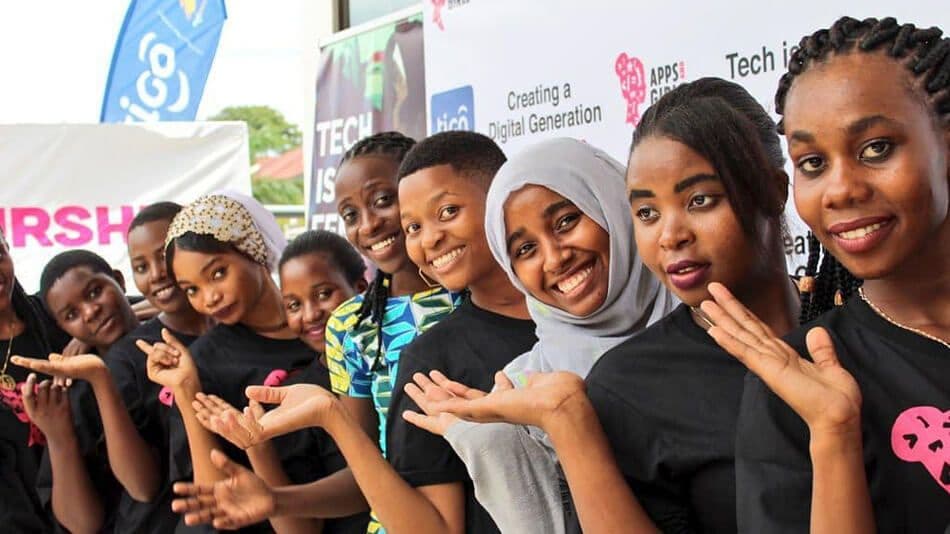
Apps and Girls
Apps and Girls empowers girls and young women in Tanzania to create the world they want to live in using technology.

Geeking Out Kids of Color
Geeking Out Kids of Color teaches kids about computer science through an inclusive, multicultural perspective.

Hope For Youth (HYPE)
Hope For Youth (HYPE) is empowering middle and high school girls of color with 21st century skills to achieve economic freedom and mobility by becoming future leaders in tech.
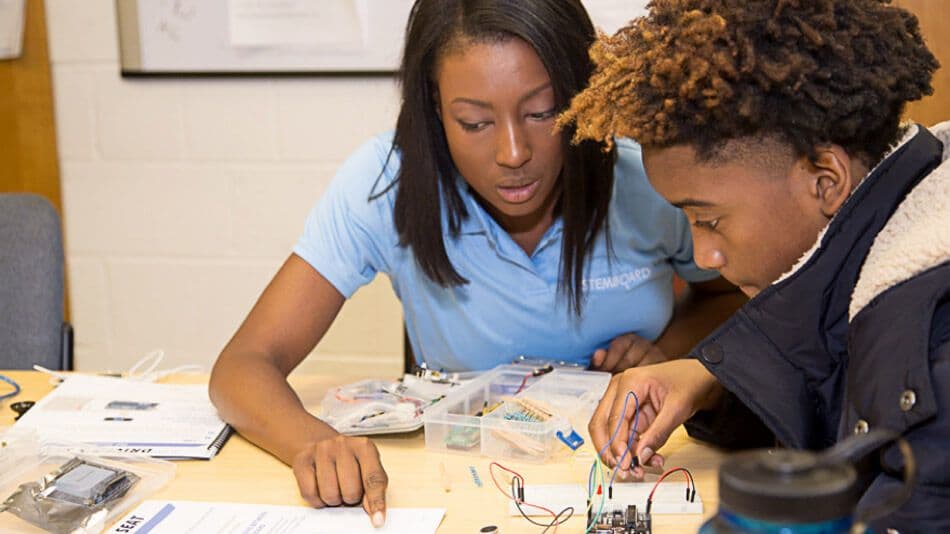
INROADS
INROADS creates pathways to careers for diverse high school and college students across the country, while assisting its corporate partners with fostering a diverse and inclusive workplace.
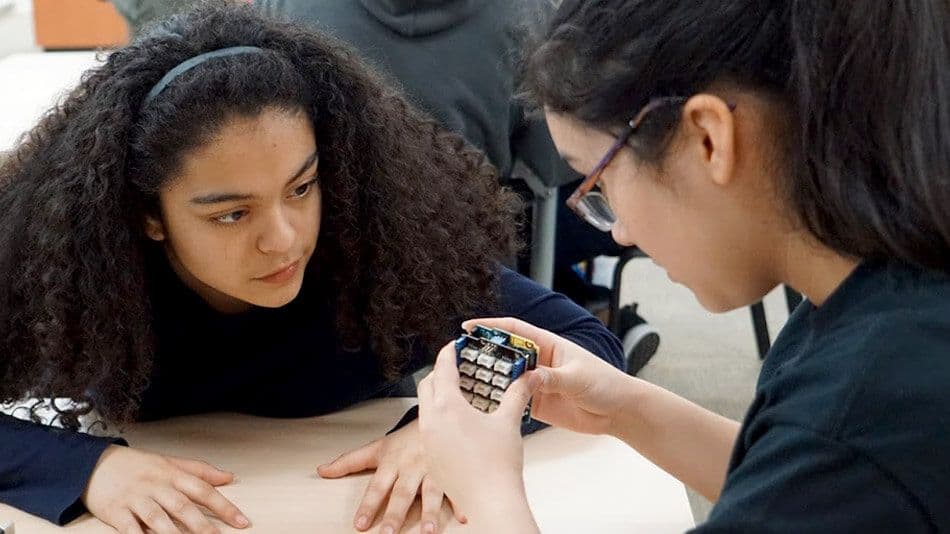
iUrban Teen
iUrban Teen designs and delivers highly sought-after skills training and experiences in STEM industries, and paved pathways that lead students toward economic empowerment and sustainability.
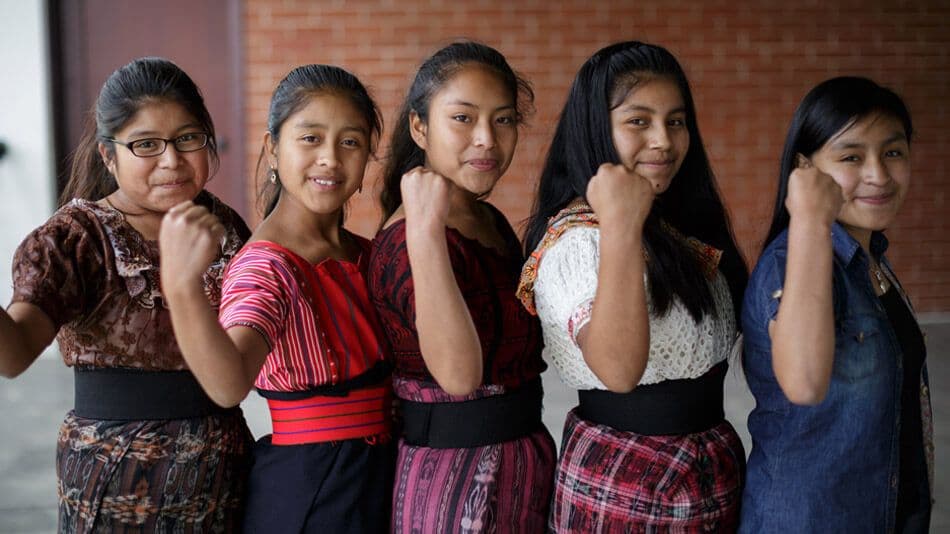
MAIA
MAIA unlocks and maximizes the potential of Indigenous Mayan girls via education, mentorship, and leadership development so they can create an expansive impact and prosperous future not only for themselves but their whole communities, Guatemala, and the world.
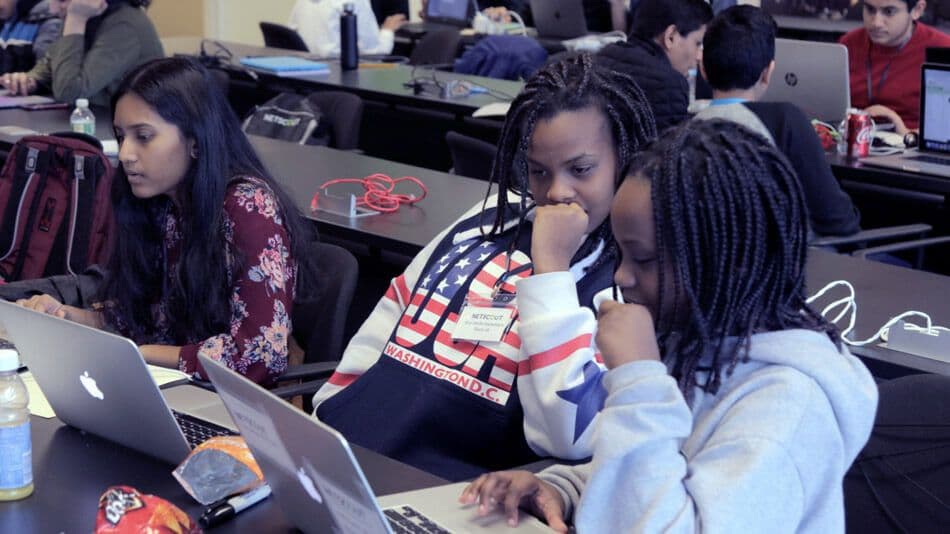
Shooting Stars
Shooting Stars is dedicated to increasing access to high-quality STEM education to help break the cycle of generational poverty.
About the Author
Related Blog Posts

Why sub-optimal application delivery architecture costs more than you think
Discover the hidden performance, security, and operational costs of sub‑optimal application delivery—and how modern architectures address them.

Keyfactor + F5: Integrating digital trust in the F5 platform
By integrating digital trust solutions into F5 ADSP, Keyfactor and F5 redefine how organizations protect and deliver digital services at enterprise scale.

Architecting for AI: Secure, scalable, multicloud
Operationalize AI-era multicloud with F5 and Equinix. Explore scalable solutions for secure data flows, uniform policies, and governance across dynamic cloud environments.

Nutanix and F5 expand successful partnership to Kubernetes
Nutanix and F5 have a shared vision of simplifying IT management. The two are joining forces for a Kubernetes service that is backed by F5 NGINX Plus.

AppViewX + F5: Automating and orchestrating app delivery
As an F5 ADSP Select partner, AppViewX works with F5 to deliver a centralized orchestration solution to manage app services across distributed environments.
F5 NGINX Gateway Fabric is a certified solution for Red Hat OpenShift
F5 collaborates with Red Hat to deliver a solution that combines the high-performance app delivery of F5 NGINX with Red Hat OpenShift’s enterprise Kubernetes capabilities.